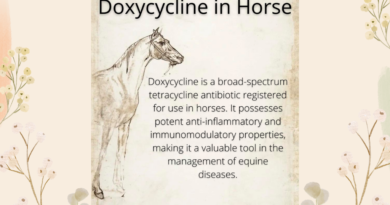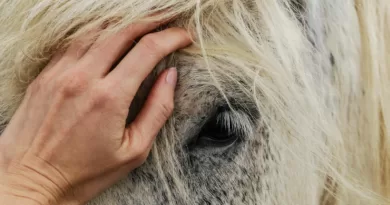Can You Use Horse Shampoo on Dogs
What is Horse Shampoo?
Horse shampoo is a specialized type of shampoo primarily designed for horses and other large animals. It is formulated to be gentle yet effective in cleaning the thick, coarse hair of these animals. Horse shampoo is typically made from a combination of gentle cleansing agents, moisturizers, and essential oils.
One of the key differences between horse shampoo and regular shampoo is the pH level. Horse shampoo is known to have a higher pH level, which allows it to effectively remove dirt and excess oil from the horse’s skin and hair. Additionally, horse shampoo often contains natural ingredients such as aloe vera, chamomile, and tea tree oil, which can soothe the animal’s skin and coat. While horse shampoo is primarily intended for use on horses, some pet owners have started using it on their dogs as well, believing that it may offer certain benefits.
Potential Benefits of Horse Shampoo for Dogs
Horse shampoo has gained popularity among dog owners as a potential alternative for bathing their four-legged companions. One of the main benefits of using horse shampoo on dogs is its deep-cleansing properties. Horse shampoos are specifically formulated to remove dirt, debris, and excess oil from a horse’s coat, which can also be beneficial for dogs with thick, long, or oily fur. By using horse shampoo on dogs, pet owners may achieve a more thorough clean that helps to maintain a healthy and shiny coat.
In addition to its cleansing properties, horse shampoo may also help reduce itching and skin irritations in dogs. Many horse shampoos contain ingredients like aloe vera and tea tree oil, which are known for their soothing and healing properties. These ingredients can help alleviate itching caused by allergies, dry skin, or insect bites. Moreover, horse shampoo’s pH balance is typically closer to that of a dog’s skin, which can help maintain the natural moisture barrier and prevent further irritation.
Considerations Before Using Horse Shampoo on Dogs
There are several important considerations to keep in mind before using horse shampoo on dogs. First and foremost, it is crucial to understand that horse shampoos are specifically formulated for the unique needs of horses and may not be suitable for dogs. The pH levels, fragrance, and ingredients in horse shampoos may not be optimal for a dog’s skin and coat.
Additionally, dog owners should be aware that not all horse shampoos are created equal. There is a wide range of horse shampoos available on the market, each with its own set of ingredients and intended uses. Some horse shampoos may contain harsh chemicals or additives that could potentially irritate or harm a dog’s skin. It is essential to carefully read the labels and choose a horse shampoo that is safe and appropriate for use on dogs.
Understanding the Ingredients in Horse Shampoo
Understanding the Ingredients in Horse Shampoo
When it comes to using horse shampoo on dogs, it is important to have a clear understanding of the ingredients that make up these products. Horse shampoos are specifically formulated for the unique needs of horses, and as such, they may contain ingredients that could potentially be harmful to dogs. While some ingredients in horse shampoo can offer benefits to both horses and dogs, others may cause adverse reactions or, in extreme cases, even toxicity.
Common ingredients found in horse shampoos include surfactants, moisturizers, and conditioners. Surfactants are responsible for creating the lather and removing dirt, oil, and debris from the horse’s coat. Moisturizers, such as aloe vera or lanolin, are included to maintain and improve the condition of the horse’s skin. Lastly, conditioners help to soften and detangle the hair, leaving the horse’s mane and tail more manageable. However, it is important to remember that the concentration and formulation of these ingredients may differ between horse and dog shampoos, making some ingredients unsuitable for canine use.
Differences Between Horse Shampoo and Dog Shampoo
When it comes to grooming products for our furry friends, it’s important to understand that horse shampoo and dog shampoo are not interchangeable. These two types of shampoos are specifically formulated for the unique needs of each animal. One key difference lies in the pH level. Dog shampoos are generally formulated with a pH level that matches the natural acidity of a dog’s skin, which is around 6.2 to 7.5. On the other hand, horse shampoos tend to have a higher pH level, ranging from 7.7 to 8.5. Using horse shampoo on a dog can disrupt the delicate balance of their skin, leading to dryness, irritation, and potential skin conditions.
Another notable difference is the active ingredients found in these shampoos. Horse shampoos often contain ingredients tailored to meet the specific needs of horses, such as ingredients to promote hair growth or enhance coat shine. While these ingredients may be beneficial for horses, they may not have the same effect on dogs. In fact, some ingredients commonly found in horse shampoos, such as pyrethrin, can be toxic to dogs. It is essential to read the labels carefully and understand the potential risks associated with using horse shampoo on dogs.
Potential Risks and Side Effects of Using Horse Shampoo on Dogs
It is important to be aware of the potential risks and side effects associated with using horse shampoo on dogs. While horse shampoo may seem like a convenient and cost-effective option for bathing your furry friend, there are some considerations to keep in mind.
One potential risk is skin irritation or allergic reactions. Dogs have different skin pH levels than horses, and using horse shampoo may disrupt the natural balance of their skin, leading to itching, redness, or even more severe reactions. Additionally, some horse shampoos contain ingredients that dogs may be sensitive to, such as fragrances or certain chemicals. These can further exacerbate skin issues or cause other adverse effects.
Alternatives to Horse Shampoo for Dogs
If you are not comfortable using horse shampoo on your dog or simply want to explore other options, there are alternative shampoos specifically formulated for dogs. These shampoos are designed to cater to the specific needs of dogs’ skin and coat, ensuring a gentle and effective cleansing experience. Dog shampoos come in a wide range of varieties, including those that target specific issues such as dry skin, excessive shedding, or allergies. Additionally, they often contain ingredients that are safe for dogs and less likely to cause any adverse reactions. Before making a decision, it’s essential to consider your dog’s specific needs and consult with your veterinarian to get their recommended alternatives.
One common alternative to horse shampoo is oatmeal-based dog shampoos. Oatmeal is known for its soothing properties, making it an excellent choice for dogs with sensitive or irritated skin. These shampoos help alleviate itching and provide relief from various skin conditions, such as dryness or allergies. They are typically formulated with oatmeal extract or oatmeal proteins, which help nourish the skin, moisturize the coat, and promote a healthy, shiny appearance. Oatmeal-based shampoos are often hypoallergenic and gentle enough to use on a regular basis, making them a popular alternative for dog owners seeking a gentle and calming shampoo for their furry friends.
How to Properly Bathe Your Dog with Horse Shampoo
To properly bathe your dog with horse shampoo, start by wetting your dog’s coat thoroughly with warm water. Ensure that the water temperature is comfortable for your furry friend. Once the coat is wet, take a small amount of horse shampoo and lather it into your hands. Gently massage the shampoo into your dog’s coat, working it into a rich lather. Be careful around sensitive areas such as the eyes, ears, and genitals.
Next, thoroughly rinse your dog’s coat with clean water, making sure to remove all traces of shampoo. Leaving any residue can cause irritation or dryness to your dog’s skin. Take your time to ensure that all shampoo is completely rinsed off.
After rinsing, gently towel dry your dog or use a blow dryer on a low setting if they are comfortable with the noise and heat. Be sure to keep the dryer at a safe distance to prevent burns. Once your dog is dry, give them a good brush to remove any loose hair or tangles.
Remember, using horse shampoo on your dog should be done sparingly and only when necessary. It is always best to consult with your veterinarian before introducing any new products into your dog’s grooming routine.
Tips for Choosing the Right Shampoo for Your Dog
When it comes to choosing the right shampoo for your dog, there are a few key factors to consider. First and foremost, you’ll want to think about your dog’s specific needs. Different shampoos are formulated for different purposes, such as moisturizing dry skin, soothing itchiness, or eliminating odors. Assess your dog’s skin and coat condition to determine which shampoo will address their specific needs most effectively.
Another crucial consideration is the ingredients in the shampoo. Look for natural and gentle ingredients that won’t irritate your dog’s skin or cause any adverse reactions. Avoid shampoos that contain harsh chemicals or artificial fragrances, as these can potentially lead to allergies or skin sensitivities. Additionally, check if the shampoo is pH-balanced for dogs, as this helps maintain the natural balance of your dog’s skin and coat, preventing dryness or excessive oiliness. By selecting a shampoo with suitable ingredients, you can ensure that your dog’s bathing experience is both pleasant and beneficial.
Consulting with a Veterinarian Before Using Horse Shampoo on Dogs
Before using horse shampoo on your dog, it is important to consult with a veterinarian. While horse shampoo may offer potential benefits for dogs, it is crucial to seek professional advice to ensure that it is safe and appropriate for your furry friend. Veterinarians have the expertise and knowledge to assess your dog’s specific needs and guide you in making the best decision for their skin and coat health.
During a consultation, your veterinarian will consider factors such as your dog’s breed, age, any existing skin conditions, and overall health. They may also ask about your dog’s bathing routine and any previous reactions to grooming products. Based on this information, the veterinarian can provide recommendations on whether horse shampoo is suitable for your dog and, if so, the frequency and technique for its use. Remember, always prioritize your pet’s well-being by seeking professional advice before introducing any new products into their grooming routine.
What is horse shampoo?
Horse shampoo is a type of shampoo specifically formulated for horses. It is designed to clean the horse’s coat and mane, as well as provide nourishment and conditioning.
Can horse shampoo be used on dogs?
While horse shampoo can be used on dogs, it is important to consult with a veterinarian before doing so. Dogs have different skin pH levels and sensitivities compared to horses, so it is crucial to ensure the shampoo is safe for your dog’s specific needs.
What are the potential benefits of using horse shampoo on dogs?
Horse shampoo may help in cleaning and conditioning a dog’s coat, providing a shiny and healthy appearance. Additionally, some horse shampoos contain ingredients that can help address specific skin or coat issues in dogs.
What should I consider before using horse shampoo on my dog?
Before using horse shampoo on your dog, it is important to consider factors such as your dog’s breed, skin type, and any existing skin conditions. Consulting with a veterinarian will help determine if horse shampoo is suitable for your dog and if any alternative products are recommended.
How can I understand the ingredients in horse shampoo?
It is essential to read and understand the ingredients listed on the horse shampoo bottle. If you are unsure about any of the ingredients or their potential effects on your dog, consult with a veterinarian who can provide further guidance.
How is horse shampoo different from dog shampoo?
Horse shampoo is formulated specifically for horses and may contain ingredients that are not suitable for dogs. Dog shampoo, on the other hand, is designed to meet the specific needs of a dog’s skin and coat. It is generally recommended to use products specifically made for dogs.
Are there any potential risks or side effects of using horse shampoo on dogs?
Using horse shampoo on dogs can lead to skin irritation, dryness, or other adverse reactions due to the differences in pH levels and sensitivities between horses and dogs. It is crucial to consult with a veterinarian before using horse shampoo on your dog to minimize the risk of negative effects.
What are some alternatives to using horse shampoo on dogs?
There are various dog shampoos available on the market that are specifically formulated to meet the needs of dogs. These shampoos are typically safer and more suitable for dogs compared to horse shampoo. Consulting with a veterinarian can help you find the right alternative shampoo for your dog.
How should I properly bathe my dog with horse shampoo?
When using horse shampoo on your dog, it is important to follow the instructions provided by the manufacturer. Ensure that you thoroughly rinse the shampoo from your dog’s coat and avoid getting it into their eyes or ears. Additionally, be mindful of any adverse reactions and discontinue use if any occur.
What are some tips for choosing the right shampoo for my dog?
When choosing a shampoo for your dog, consider factors such as their breed, skin type, any existing skin or coat issues, and recommendations from your veterinarian. Look for shampoos specifically formulated for dogs that meet your dog’s specific needs.
Why is it important to consult with a veterinarian before using horse shampoo on dogs?
Consulting with a veterinarian before using horse shampoo on dogs is crucial because they can assess your dog’s specific needs and advise you on the appropriateness of using horse shampoo. They can also recommend alternative products that may be safer or more suitable for your dog’s skin and coat.




